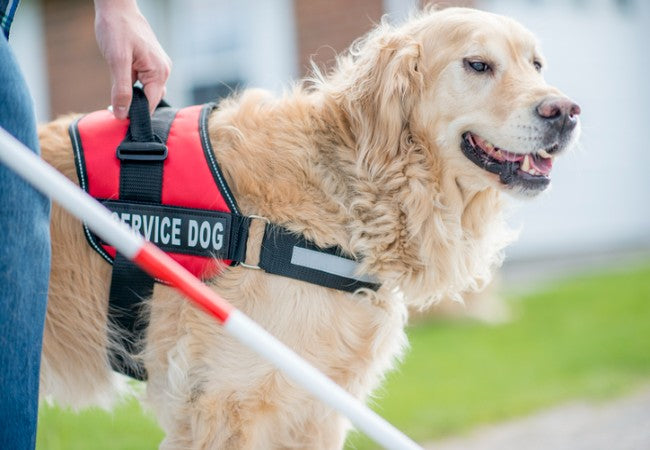Service Dogs 101: A Vet Approved Guide to Roles, Training & Legal Rights in 2025 🐶🐾

In this article
Service Dogs 101: A Vet Approved Guide to Roles, Training & Legal Rights in 2025 🐶🐾
By Dr. Duncan Houston BVSc
Service dogs play a pivotal role in assisting individuals with disabilities, offering both physical support and emotional companionship. 🐕🦺 Their specialized training enables them to perform tasks that enhance the independence and quality of life for their handlers. Let's delve into the various roles, training processes, and legal rights associated with service dogs in 2025. 🧠
🔍 Understanding the Roles of Service Dogs
Service dogs are trained to perform specific tasks tailored to the needs of their handlers. Common roles include:
- Guide Dogs: Assist visually impaired individuals in navigating their environment.
- Hearing Dogs: Alert deaf or hard-of-hearing individuals to important sounds.
- Mobility Assistance Dogs: Aid individuals with physical disabilities by performing tasks like opening doors or retrieving items.
- Medical Alert Dogs: Detect medical conditions such as seizures or changes in blood sugar levels.
- Psychiatric Service Dogs: Support individuals with mental health conditions by interrupting harmful behaviors or providing grounding during anxiety episodes.
Each role requires specialized training to ensure the dog can effectively support their handler's unique needs.
🛠️ The Training Process
Training a service dog is a comprehensive process that typically spans 18 months to 2.5 years. The stages include:
- Socialization: Exposure to various environments, people, and other animals to build confidence and adaptability.
- Basic Obedience: Mastery of fundamental commands such as sit, stay, and come.
- Public Access Training: Ensuring the dog behaves appropriately in public settings, ignoring distractions and remaining focused.
- Task-Specific Training: Teaching tasks tailored to the handler's specific needs, such as alerting to medical conditions or providing mobility assistance.
Positive reinforcement techniques are commonly employed throughout the training to encourage desired behaviors.
📜 Legal Rights and Considerations
Under the Americans with Disabilities Act (ADA), service dogs are granted specific rights to ensure they can accompany their handlers in various settings:
- Public Access: Service dogs are allowed in public places where pets are typically not permitted, such as restaurants, stores, and public transportation.
- Housing: Individuals with service dogs cannot be denied housing, even in properties with no-pet policies.
- Air Travel: Service dogs are permitted to accompany their handlers on flights, provided they meet specific airline requirements.
It's important to note that emotional support animals and therapy dogs do not have the same legal rights as service dogs under the ADA.
📱 Enhance Your Service Dog Journey with Trusted Resources
For additional support and personalized guidance, consider these resources:
- Ask A Vet: Connect with veterinary professionals for expert advice. 🩺
Empower your journey with your service dog by downloading the Ask A Vet app today and ensure your furry companion thrives in 2025 and beyond! 📲🐾






